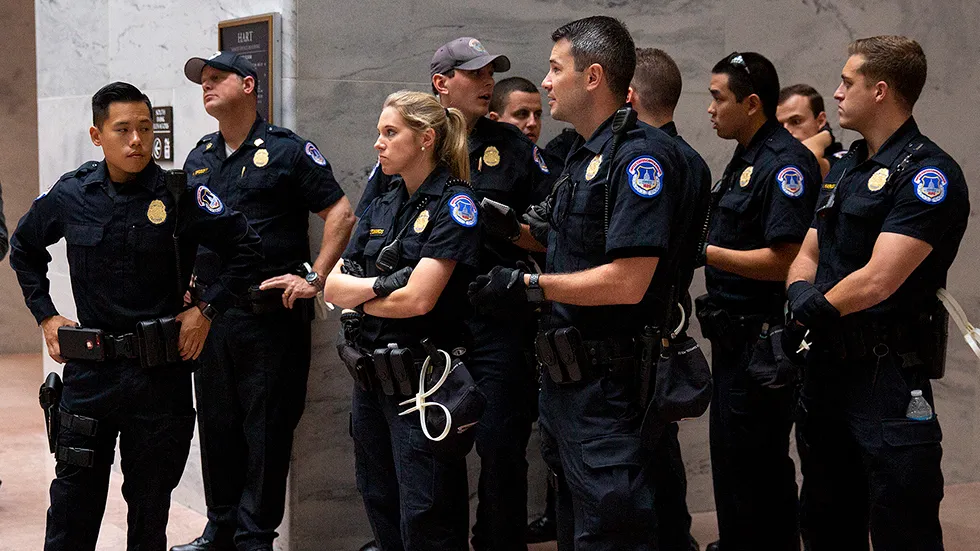Working in law enforcement means you’ll often face high-stress situations, from emergency responses to dealing with dangerous individuals. To handle these challenges effectively, law enforcement professionals need to be well-trained and prepared. Law enforcement certifications play a significant role in helping officers perform under pressure. In this article, we’ll explore how these certifications can help you excel when the stakes are high.
1. What Are Law Enforcement Certifications?
Law enforcement certifications are formal credentials that demonstrate an officer’s expertise in various areas of policing. These certifications are earned through training and exams and cover a wide range of topics like criminal law, self-defense, investigation procedures, and emergency response. Earning these certifications is essential for officers to improve their skills, advance their careers, and excel in challenging situations.
2. Building Confidence Through Certification
One of the most important benefits of law enforcement certifications is the confidence they build. When you are certified in specific areas, like crisis intervention or tactical response, you know you have the training to manage difficult situations. Confidence can make a huge difference in high-stress moments, as it allows you to make decisions more quickly and act without hesitation.
2.1 Training Under Pressure
Many law enforcement training programs, especially those for high-stress situations, focus on simulating real-life pressure. This includes mock scenarios that put officers in stressful environments, such as hostage situations or active shooter drills. These experiences help officers remain calm and think clearly during actual emergencies.
2.2 Being Prepared to Respond
With the right certifications, you’ll be trained to handle various types of high-stress scenarios. Whether it’s a public disturbance, a high-speed chase, or a dangerous suspect encounter, the knowledge gained from these programs helps you respond confidently and efficiently, reducing the chance of mistakes.
3. Specialized Training for High-Stress Situations
Certain law enforcement certifications are specifically designed to help officers excel in high-stress environments. These specialized certifications can make you better equipped to handle specific challenges:
3.1 Crisis Intervention Training (CIT)
Crisis Intervention Training teaches officers how to interact with people who are experiencing a mental health crisis. This certification is essential because it helps officers manage tense situations calmly and without escalation, which can be a life-saving skill in high-stress interactions.
3.2 Tactical Training
Tactical training certifications, such as SWAT or advanced weaponry courses, teach officers how to safely and effectively handle dangerous situations that require precision and decision-making under pressure. These courses focus on teamwork, strategic planning, and handling armed suspects, all of which are critical in high-risk situations.
3.3 Defensive Tactics and Self-Defense
Law enforcement officers are often required to defend themselves or others in tense, high-stress situations. Certifications in defensive tactics and self-defense help officers stay calm and perform physical maneuvers under pressure. This training teaches officers how to subdue suspects safely while minimizing risk to themselves and the public.
4. Improved Decision-Making Skills
In high-stress situations, the ability to make quick and accurate decisions is crucial. Law enforcement certifications often include training in decision-making under pressure, teaching officers how to assess a situation rapidly and determine the best course of action.
4.1 Assessing Threats Quickly
With certification programs in areas like threat assessment and situational awareness, officers learn how to evaluate a situation swiftly and determine the level of risk involved. This skill is invaluable during high-stress encounters, such as when responding to an armed robbery or a domestic violence incident.
4.2 Making Informed Choices
Certifications in investigative techniques, forensics, and legal procedures help officers make informed decisions in the heat of the moment. Knowing the law, proper protocols, and investigative methods helps reduce the chances of making costly mistakes that could escalate the situation.
5. Maintaining Emotional Control
One of the greatest challenges of working in law enforcement is maintaining emotional control during tense situations. Law enforcement certifications often include emotional intelligence training, which teaches officers how to manage their emotions while staying focused on the task at hand.
5.1 Managing Stress
Training programs teach techniques for managing stress, such as breathing exercises and mental focus strategies. These tools help officers stay calm, think clearly, and avoid emotional reactions that could worsen a stressful situation.
5.2 Keeping Calm Under Fire
Whether it’s a suspect refusing to comply or a high-speed chase, maintaining control in the face of danger is vital. Certification courses that focus on mental and emotional resilience teach officers how to stay calm under fire, which is key to making sound decisions in the middle of chaos.
6. Enhancing Teamwork and Communication
High-stress situations often involve multiple officers and agencies working together. Effective teamwork and communication can make the difference between success and failure. Law enforcement certifications emphasize collaboration and clear communication, teaching officers how to work with their colleagues under pressure.
6.1 Clear Communication
In tense moments, clear communication is essential for coordinating responses and ensuring everyone’s safety. Certifications often include training in radio communication, report writing, and verbal de-escalation techniques, all of which are crucial for handling high-stress scenarios effectively.
6.2 Coordinating with Other Agencies
Law enforcement officers don’t work in isolation; they often collaborate with other agencies, such as emergency medical services (EMS) or fire departments. Specialized certifications, such as those for emergency management or interagency communication, help officers coordinate responses and ensure a unified approach to crisis situations.
7. How Law Enforcement Certifications Support Long-Term Success
Beyond just excelling in high-stress situations, law enforcement certifications support long-term success in the field. Continuous training ensures that officers remain up-to-date on the latest techniques, technology, and legal changes, which is vital in a career that requires constant adaptation.
7.1 Continuous Learning
Law enforcement is a dynamic field, and the challenges officers face are always evolving. With certifications, officers are encouraged to engage in ongoing education and skill development, ensuring they stay prepared for whatever situations arise.
7.2 Advancing Your Career
Earning certifications shows your commitment to your career and your desire to improve. As you gain more certifications, you become eligible for more advanced roles within law enforcement, such as detective, SWAT officer, or tactical response leader. This continued growth also increases your ability to handle high-stress situations more effectively.
8. Conclusion: Get Certified to Handle Stressful Situations
Law enforcement certifications are not only a way to demonstrate your expertise but also a crucial tool for excelling in high-stress situations. These certifications help you build confidence, improve decision-making, maintain emotional control, and work effectively with others when things get tough. By investing in your professional development and earning certifications in key areas, you can be better prepared to handle even the most challenging circumstances, making you a more effective and resilient officer.
If you’re looking to excel in law enforcement, consider exploring the different law enforcement certifications available and how they can help you perform at your best when it matters most.





